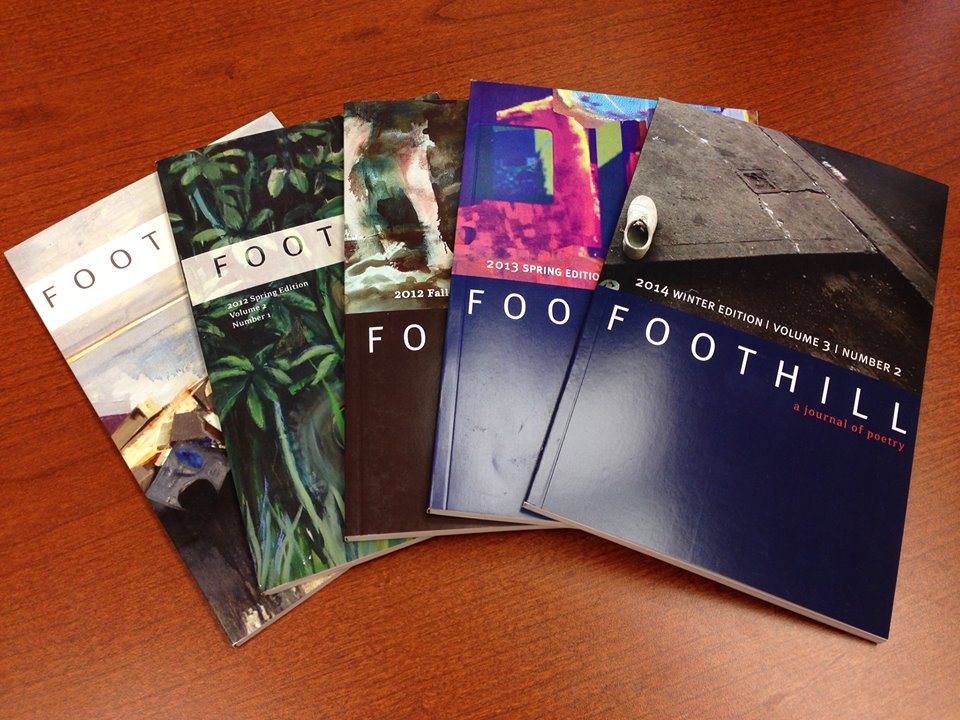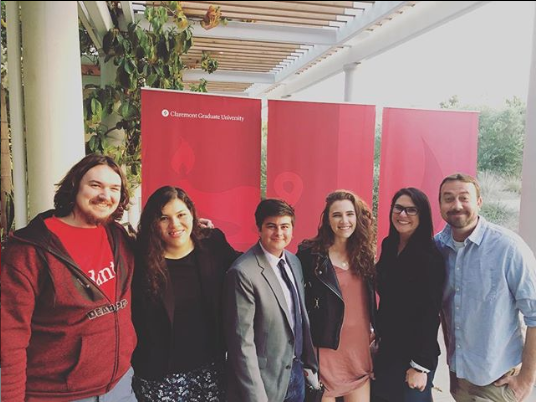Learning by Reading – Being an Editor at Foothill Poetry Journal

This is my last post as the Tufts Summer Blogger-in-Residence and I wanted to close out on a personal level. I have been an assistant editor at the Foothill Poetry Journal for about a year now and it has been one of the most rewarding experiences I have ever had. There are all the obvious buzzwords: examining poetry, feeling professional, and meeting wonderful people. We meet roughly every other week, and it is something I look forward in the dark days working my part-time job. I wanted to take those buzzwords and talk a little bit more in-depth about how awesome a meeting like this can be.

Here’s a rundown of the process:
- About a week ahead of time, our wonderful Editors-in-Chief email us a packet, which we grade on our own before the meeting.
- (Each packet contains about 25 poems)
- On the day of the meeting, we come in and go through each poem and compare our grades.
- Poems that rise above the slush pile are looked at more closely.
- Typically, this comes by someone “nominating” it for publication, and then arguing why that poem fits in at Foothill.
- After rebuttals and further discussion (even reading a poem out loud, if the need arises), we vote on whether the poem has earned publication.
- And that’s about it.
- Oh! And it wouldn’t be a meeting without some booze and snacks involved.
What makes these meetings great is the positivity of the group. Obviously, not every poem submitted is going to be good, and sometimes a packet will be chock full of poems that need a lot of work. What’s “a lot of work” mean? Basically, some poems have cliché, tired lines—like the bad guy monologuing in a movie—or are so unrefined it would be like trying to salt your dinner with a boulder of sodium chloride. Enduring the heavy packets is only worthwhile because of the people pointing out all the great aspects that persist within these poems. Yep. Just because a poem is imperfect does not mean it is worthless. Some of the most amazing lines I have read are in poems we have had to turn down. Usually, it is because the rest of the poem that is lacking, since while one line can make a poem, the rest of them can also ruin it. On many, many occasions we have paused our grading to say something along the lines of: “this line about Russell Crowe in Gladiator though? Perfect.”
Now, a lot of what I am saying is obvious to anyone who has ever worked in a positive group environment before. But what may go unsaid is that there is a value to working in a group. “Problems” that pop up are not treated as unfixable errors, but rather as areas of improvement. So many of the poems we look at are filled with teachable moments. Who is being taught? The poet, somewhat, in their rejection letter; but as an editor, I notice my own poetry shifting as we discuss poetic traits that are missed in your typical Lit class.
It is one thing to look at Dante, or Eliot, or Dickinson, or Angelou and think, “wow. These poems are incredible. I want to do that.” and then try to do it. It is another thing to pick apart a “bad” poem and say to yourself, “what makes this bad? How would I make this good, if I were writing it?” Those little questions and the postulations on how to answer them have stuck with me while I have been writing (and rereading) my own poetry. Words and phrases that I would not have thought twice about previously are now given scrutiny. It is wonderful (if, at times, frustrating), and I appreciate the opportunity.
Speaking of opportunities, I wanted to give a shout out to Genevieve Kaplan (here’s her Twitter), who has overseen the Tufts Blog, in addition to so many Tufts related things, and given so many of us grad students a voice (as well as sage advice on how to improve our work). I wouldn’t be here writing without her. She’s moving on to new things though, and I wanted to wish her luck in all that’s to come (though she doesn’t need it—she’s awesome).
– Cassady O’Reilly-Hahn
A Moment of Zen:
Clumsy Dog
As he barrels past
he takes out the table, chairs,
and even the cat.

Share